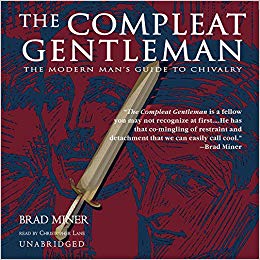Ok, or as they say "Alrighty then" I cannot say that I totally agree with you or GodsGrace, other than a denomination has the right to define what they believe. But still I think you are kinda spiting hairs on terms. The Church has made an official statement on this, so why not just go with that. For me, I do not agree with any of it. The conversation in the scriptures is too short to make a definitive detailed doctrine. As it is this belief has enslaved women, trapped them and their children in abusive relationships, and worse. No, I do not believe that any of that is of Christ's intent.
Then again, BOL, show me the scripture that indicates that rudeness is of God. I am kind of a scraper, I would like to have that in my back pocket. And I would jump for joy if you could show me the scripture that we should be rude to women, cause I just live for that. Surely Christ gave us an example in the scriptures were He was rude to women. Put Noooooo! So as it is neither Christ or your parents could teach you manners. So you have been awarded another lesson in manners....
View attachment 6983
…the greatest man would justly be reckoned a brute if he were not civil to the meanest woman.” Martine’s Handbook (1866)
The crisis today in the relationships of men and women is multi-faceted. The general lack of manners in their interaction is both an indication and a cause of the crisis.
Women are to be reverenced, always and just because they are women. This truth, as other basic truths, is universally knowable, even though not universally known and practiced.
The nature and dignity of woman may remain something of a mystery to most men. But nevertheless, actions that show reverence to women can and should be expected of them. It was once so, as part of a code of manners. If universally expected, these actions will be generally practiced; and among some, perhaps even many, the corresponding interior dispositions will grow.
On the very first page of Emily Post’s
Etiquette we find the following instructions about introductions:
First, a younger person is presented
to an older person. Second, a gentleman is always presented
to a lady, even though she is no older than eighteen. Third, no woman is ever presented to a man, unless he is: the President of the United States, the recognized head of another country; a member of a royal family; a cardinal or other church dignitary.
Such instructions probably strike us, especially the young, as odd. But then again, they seem to speak to something deep within us. In every introduction involving a woman, she is to be given a certain priority and reverence. Such customary manners were an expression of a communal understanding, even if only implicit, about the dignity of woman. But more than just an expression, they were a central means of cultivating and promoting that understanding and a corresponding reverence.
There will always be men, even among those who do practice good manners, who will view and treat women inappropriately. The condition of our human nature, including our freedom, pretty much assures this. But rather than lessening the importance of manners, it gives special reason to value them. We all, especially parents, have every reason to redouble our efforts to instill good manners and customary practices between men and women.
Such practices are of course the responsibility of both sexes. But the responsibility falls first upon men, and it is there that I focus my attention. It is worth simply calling to mind some traditional practices.
As a rule, a man holds the door for a woman; he offers his seat to a woman; he offers to carry something heavy; he walks on the side closer to traffic; he offers his umbrella; he gives more attention to his clothes and grooming in her presence; he is especially vigilant about his language; he does not pry into her private life. And in all these things he is careful not to seem patronizing or pushy. Indeed, now that such practices can be seen as offensive by some women, it is all the more incumbent upon a man to act with prudence and in no way to seem to be ‘making a point’ of his manners.
The interaction between men and women in contexts either potentially or actually romantic calls for special attention. Traditional practices here, which in fact go beyond what would normally be called manners, were rooted in a two main convictions: first, romance is ordered toward marriage, and second, the human condition demands that steps be taken to protect the integrity of romance, and especially to protect the honor of women. Rather than stemming from a prudish recoiling from the romantic or from a dark distrust of people, the observance of such rules of interaction is the fruit of an insight into the very nature of man and woman and of an understanding that their healthy interaction needs fostering.
Emily Post wrote:
If a young girl’s family is not at home, she should not, on returning from a party, invite or allow her date to ‘come in for a while.’ If he persists, she should tell him firmly, ‘Sorry, another time,’ and bid him ‘good night.’ However, if her parents are home and have been notified, it is perfectly all right to invite him in for a snack. He should not stay overly long, and if he shows no inclination to leave, the girl should tell him that her parents have set a definite ‘curfew’ hour.
These guidelines might strike us as too much, or as too specific. What is worth noticing, it seems to me, is the common sense approach to addressing a real issue. Whatever their exact formulation, when rules such as the above are commonly practiced they incarnate and convey a sense of propriety and limit. Young men and women are thus given to understand that their interaction is part of something bigger than themselves, something that will demand much of them. These are points that young men, in particular, need to learn. Acting well by the women in their life will always be an arduous task. To have to work hard to ‘win’ their way into relationships is a fitting preparation.
How to formulate and promulgate reasonable practices in this area will challenge even the most vibrant families and communities today. Perhaps the most challenging aspect is to make the practices an expression not of fear but of hope. Healthy communities have always realized that the proper relating of men and women is a flower that needs careful, communal cultivation. It does not bloom and flourish of itself.
Some today might ask what basis there is for giving women special care and attention. This is of course in itself a profound question. Yet at times the spirit in which the question is posed can indicate that certain fundamental insights have simply been lost. More and more we tend to see ‘nature’ as something to re-mold according to our wishes, and we do not hear what she is saying to us about who we are.
Women are deserving of special reverence not because of weakness, but because of strength. In women, a man can intuit the presence of something that transcends his comprehension. It is in reality something of the divine, something that is somehow his to cherish, to serve, and to protect. Just what it is, and how best to respond to it, he will need to spend a lifetime trying to discover.
Good manners in the interaction of men and women is a great tool in this effort. And we can work together in our communities to reclaim and reform these expressions of an ancient wisdom.



